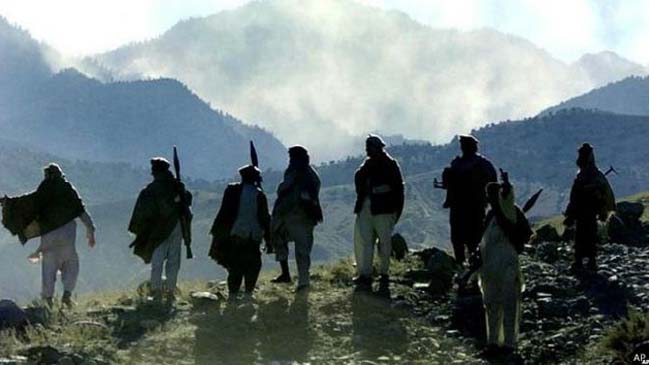Terrorism is the root problem which plagued Afghan nation within the past decade. The insurgency was escalated with the drawdown of US-led NATO forces and the emergence of the self-styled Islamic State of Iraq and the Levant (ISIL). The “war on terror” failed to bear the desired result and the peace talk was derailed with the revelation of Mullah Omar’s death– Pakistan’s struggle was proved abortive in nudging the Taliban to sit around the table of negotiation. However, the Taliban held a grand council in Pakistan for the appointment of Mullah Akhtar Mansour as their leader – who signaled peace talk as “enemy’s propaganda” and organized deadly attacks which led to the death and injury of dozens of Afghan civilians. Subsequently, the relation between Kabul and Islamabad turned sour.
The Taliban insurgent group continued its “spring offensive” without cessation and captured Kunduz province in late September 2015 - the first time the extremists had managed to capture a major city since 2001. Similarly, The Taliban fighters attacked the Afghan Parliament on June 22, 2015 as lawmakers were about to review a government nominee for defense minister. Few days back, they captured Sangin district of Helmand province and killed more than hundred of Afghan soldiers. And these presented the National Unity Government (NUG), which has been alarmed about insurgent advances in the surrounding province for a year, with a demoralizing setback less than a year after the formal end of the NATO combat mission in Afghanistan. These all worsened the Afghan-Pak relation and Pakistan’s lip service to peace and security in Afghanistan was received coldly.
Zamir Kabulov, the Russian President’s special envoy for Afghanistan, said in a recent statement that the situation in Afghanistan remains tense, with “high or extraordinary” security threats present in 27 of the 34 Afghan provinces, as Taliban militants intensify their activities in different parts of the country. He also called the US and NATO mission in Afghanistan a complete failure. According to him, the ongoing “Decisive Support” training mission, which the US and their allies in Afghanistan are currently conducting, has also shown very little result. In the meantime, the US warns of the emergence of al-Qaeda training centers in Afghanistan – it is believed to be an indirect confession of failure of defeating terrorism in the country. Speaking on the Eve of first drawdown anniversary, US officials said that they are not happy with the current situation, arguing that the Taliban has gained ground in the country. They said the Taliban has seized many parts of Afghanistan in the past year – the most since their regime was toppled in 2001. Officials further added that Afghan casualties among security force members have surged by 26 percent this year. According to US officials, at least 7,000 Afghan security force members have been killed between January 2015 and the beginning of December.
Afghan security officials also believe that the “war on terror” has become more complex and terrorists are better equipped than they were in the past. Officials have frequently said that the Taliban’s heavy attacks are organized from across the border and Pakistan’s military operation Zarb-e-Azb led to little achievement, if it was ever fruitful. “The world witnessed that Osama Bin Laden was killed in Pakistan as well as Mullah Omar. Even Mullah Akhtar Mansour was wounded on Pakistani soil. The world endorsed those terror nurseries and hideouts operating in Pakistan, therefore pressure was mounted on Pakistan at an international level,” historian Ghulam Mohammad Mohammadi is cited as saying.
However, the Afghan-Pak relation improved to some extent after Afghan President Muhammad Ashraf Ghani attended the Heart of Asia Conference in Islamabad last month where Pakistan signaled its willingness to help revive stalled peace talks between Afghanistan and the Taliban. Moreover, Afghanistan’s High Peace Council (HPC) reiterated its calls to Pakistan to step up efforts and break the negotiations stalemate with the Taliban. Last week, Pakistan’s Chief of Army Staff Gen. Raheel Sharif held talks with President Ghani and CEO Abdullah Abdullah on bilateral cooperation between the two countries, counter terrorism and peace in Afghanistan. Additionally, Pakistan’s national security advisor Sartaj Aziz said that a four member commission comprising representatives from Afghanistan, Pakistan, China and the U.S will be formed to facilitate the resumption of peace talks. In a nutshell, the relation between Kabul and Islamabad ebbed and flowed and the reconciliation process did not come to fruition in 2015. Pakistan pushes for resumption of peace talk in 2016. Speaking while inaugurating Heart of Asia-Istanbul Process, Pakistani Prime Minister Nawaz Sharif said, “It is our firm belief that a robust and meaningful reconciliation process owned and led by Afghans, is vital for long term peace and stability in Afghanistan. Pakistan is ready to extend support to a meaningful process, wherein both the Afghan Government and the Taliban can move forward, in a spirit of accommodation and reconciliation.”
2015 would be recorded the bloodiest year compared to the past since a large number of Afghan combatants and non-combatants were killed in terrorist attacks. Moreover, scores of individuals took refuge to foreign countries to flee militancy and political turmoil. Insurgencies continued unabated and the Taliban fighters gained the ground. However, there is no hope for the best in the year of 2016 since rumor says that the ISIL militant group will stage its attacks in the coming spring – if the prediction comes true and the government does not foil the would-be attack, it will be no less intensive than the Taliban’s spring offensive.

